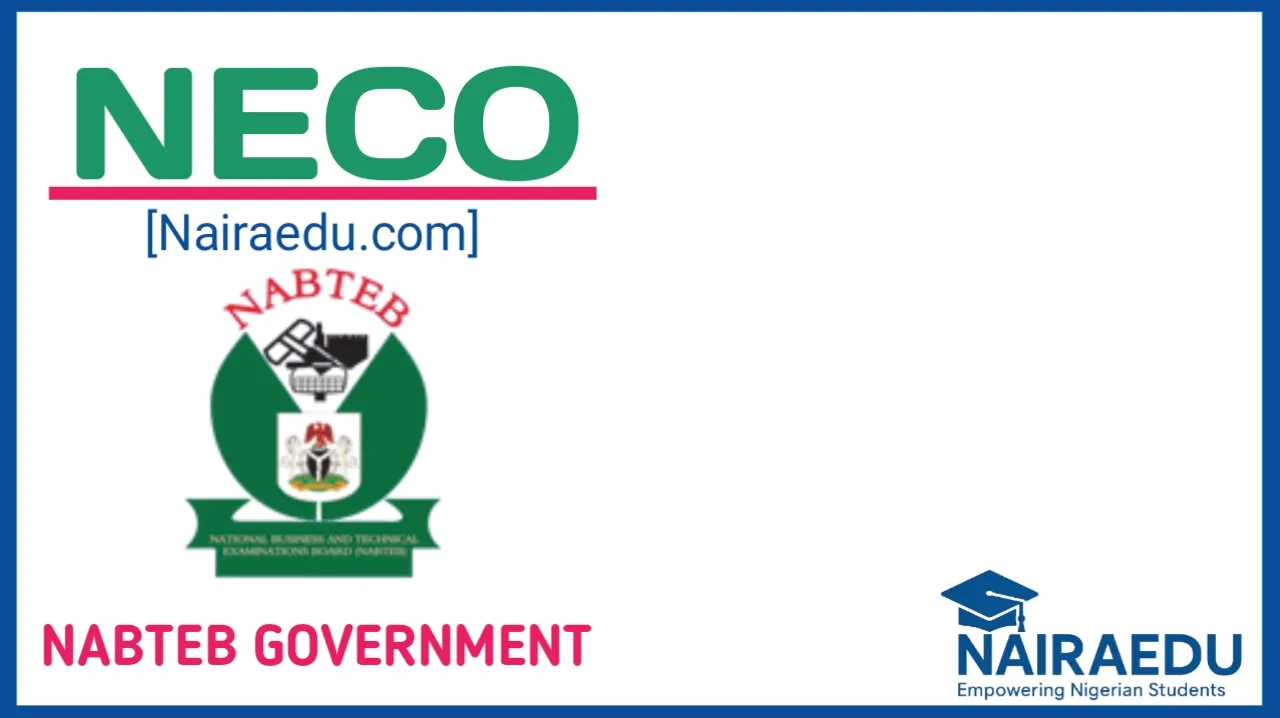NABTEB 2025 GOVERNMENT ANSWERS
INSTRUCTION: ANSWER THREE QUESTIONS FROM THIS PART
(1a)
Political culture refers to the shared attitudes, beliefs, and values that shape a community’s understanding of its political system, while political socialization is the process through which individuals learn and acquire these political attitudes, beliefs, and values.
(1b)
(i) Family: This is the first and most important agent of political socialization, as children initially learn their political attitudes, loyalty, and beliefs from their parents and other family members.
(ii) School: Educational institutions teach civic responsibilities, the structure of government, and political institutions, helping to foster understanding and awareness in growing children.
(iii) Peer Groups: Friends and colleagues influence an individual’s political views through shared opinions, group norms, and collective attitudes.
(iv) Mass Media: Radio, television, newspapers, and social media provide information and perspectives on current events, thereby shaping individuals’ judgments and beliefs about politics.
(v) Religious Institutions: Churches, mosques, and other places of worship contribute to political socialization by instilling moral values, norms, and attitudes that guide civic behavior.
===========================
(2ai)
Communalism: Communalism refers to a system where community members collectively own resources and make decisions together to benefit everyone in the community. It emphasizes shared responsibilities, unity, and collective welfare.
(2aii)
Feudalism: Feudalism is a political and economic system in which land is owned by a small number of lords, and the majority of people work the land in exchange for protection, food, or residence. This forms a hierarchical structure with loyalty and service tying together different classes.
(2aiii)
Democracy: Democracy is a form of government where power belongs to the people, either directly or through their elected representatives. Citizens have a say in decision-making, by voting in free and fair elections. It guarantees political participation, representation, and accountability.
(2aiv)
Totalitarianism: Totalitarianism is a political system in which the state holds absolute control over all aspects of public and private life. It involves a single ruling party or leader, extensive surveillance, and the suppression of opposition or criticism.
(2b)
(i) Communalism: Collective ownership of resources.
(ii) Feudalism: Presence of a rigid class structure.
(iii) Democracy: Rule by the majority through free and fair elections.
(iv) Totalitarianism: Concentration of power in a single ruler or party.
===========================
(3a)
(i) First Reading: This is the stage where the bill is formally introduced in parliament. The title of the bill is read aloud, and copies are distributed to members of parliament.
(ii) Second Reading: At this stage, members debate the general principles and main ideas of the bill. This allows for a thorough discussion of its necessity and potential effects before proceeding further.
(iii) Committee Stage: The bill is referred to a specialized committee, which closely scrutinises its provisions, considers expert testimony, and may propose amendments or make modifications.
(iv) Report Stage: After the committee’s review, the bill is presented back to the full parliament alongside a report of its findings and any suggested amendments. Members then debate and vote on these.
(v) Third Reading: This is the final stage where the amended bill is put to a vote by the full parliament. If it is passed, it moves forward to become law with eventual consent by the Head of State, depending on the constitution.
(3b)
(i) Making laws for the country.
(ii) Approving the annual budget.
(iii) Providing oversight of the executive arm of government.
(iv) Representing the interests of their constituents.
(v) Confirming appointments made by the executive such as ministers or judges.
===========================
(4a)
Civil Service refers to the body of government officials and employees who carry out the day-to-day administration and implementation of government policies and programs.
(4b)
(i) Permanence: The Nigerian Civil Service is a permanent institution that is not affected by a change in government, ensuring stability and continuity in administration.
(ii) Political Neutrality: Civil servants are expected to be impartial and non-partisan in their duties, serving all members of the public equally, regardless of political affiliation.
(iii) Anonymity: Civil servants work quietly and without publicity; their names are not usually made known to the general public, allowing them to perform their responsibilities without interference.
(iv) Hierarchical Structure: The civil service operates under a well-defined chain of command, with clear lines of authority and responsibility from the highest to the lowest ranks.
(v) Merit-Based Appointment and Promotion: Entrance into and promotion within the civil service are based on qualifications, experience, and ability, ensuring fairness and competency in service delivery.
(4c)
(i) Implementing government policies and programs.
(ii) Advising the government on policy formulation.
(iii) Providing essential services to the general public.
(iv) Preparing data and reports for government decision-making.
(v) Facilitating communication between the government and the citizenry.
===========================
(5a)
(i) Registration of Voters: The electoral commission is responsible for compiling and updating the voter register, ensuring that all eligible voters are accurately recorded.
(ii) Conduct of Elections: It organizes and oversees the electoral process, from voter registration to casting of votes, collation, and announcement of results.
(iii) Delimitation of Constituencies: The commission sets electoral boundaries to enable fair representation in legislative bodies.
(iv) Voter Education: It is in charge of educating the electorate about their civic rights, responsibilities, and the electoral process to enable them to make informed choices.
(v) Conflict Resolution: The electoral commission mediates disputes and complaints arising from electoral contests and helps to resolve them fairly and impartially.
(5b)
(i) Political Interference: The commission’s independence is frequently undermined by interference from political parties or government officials.
(ii) Security Concerns: Violence, intimidation, and unrest during electoral periods pose a significant challenge to the commission’s ability to conduct free and fair elections.
(iii) Financial Constraints: Limited funding restricts its ability to perform its duties effectively, from voter education campaigns to employing sufficient electoral staff.
(iv) Logistical Problems: Difficult terrain, poor transportation, and communication networks make the delivery of electoral materials and services challenging.
(v) Accusations of Rigging: There are often complaints and controversies alleging electoral fraud, vote tampering, or manipulation, which undermine confidence in the electoral process.
ALSO READ: NABTEB Chemistry 2025 Questions And Answers
===========================
(6a)
(i) Legislative: The Igbo legislative system was a democratic assembly composed of elders, titleholders, and representatives from various families or clans. Decisions were made collectively through consensus, with every group having a voice in policy formulation.
(ii) Executive: The executive arm was not held by a single ruler but by a council of elders or a group of recognized leaders who enforced decisions made by the assembly. They implemented community regulations, settled disputes, and maintained peace and order.
(iii) Judiciary: The judiciary was made up of a group of impartial elders and community leaders who adjudicated disputes and crimes. They relied upon customs, traditions, and precedent to make judgments, ensuring fairness and justice for all members of the community.
(6b)
The Igbo pre-colonial government was a confederation because each community was independent and governed itself while still retaining strong ties of unity with neighboring communities. This decentralized structure fostered collective decision-making and preserved the autonomy of each community, reflecting their cultural values of equality and shared responsibility.
===========================
(7a)
The Richards constitution of 1946 was introduced by Governor Sir Arthur Richards in response to growing demands for greater Nigerian participation in governance. It was designed to bring together the different ethnic groups and regions under a single constitutional framework. The constitution was a departure from the previous 1922 Clifford constitution and was meant to provide a basis for eventual self-rule by allowing limited representation and consultation in legislative processes.
(7b)
(i) Regional Representation: The constitution divided the country into three main regions, the North, the West, and the East, ensuring representation from each in the legislative council.
(ii) Legislative Council: It established a legislative council made up of both official and unofficial members, reflecting a blend of administration and representation.
(iii) Limited Franchise: The constitution provided for a restrictive electoral process, allowing only a small number of people to vote and select their representatives.
(iv) Advisory Role: The legislative council acted in an advisory capacity to the governor, reflecting the limited power of the institution under the constitution.
(v) Unification: The Richards constitution was a step toward greater unity by attempting to bring together different ethnic groups and foster a collective political framework for the country.
===========================
(8a)
Revenue Allocation: The allocation of financial resources among federal, state, and local governments in Nigeria is a major problem. Often, the federal government controls the majority of the country’s revenue, while state and local governments are left with limited funding for their responsibilities. This imbalance contributes to financial dependency, underdevelopment, and growing discontent among the constituent units.
(8b)
Minority Issue/State Creation: Some ethnic minorities feel neglected and underrepresented in the federal structure. This has led to repeated demands for state creation, as a way to enable them to manage their own resources, protect their culture, and foster greater participation in governance. However, the process for state creation is complex and frequently influenced by political pressures, adding to disputes and dissatisfaction.
(8c)
Inter-ethnic Rivalry and the Issue of Secession: The competition for power, resources, and recognition among ethnic groups frequently results in conflict and tension. Some groups, feeling unfairly treated or marginalized, have called for secession or greater autonomy, fueling political crises and threatening the unity of the country. This further weakens federal institutions and stability.
(8d)
Federal Character or Quota System: The federal character policy, which is meant to promote fairness and inclusiveness, sometimes results in mediocrity and inefficiency. Appointments and promotions may be based on ethnic or geographical representation instead of merit, thereby undermining competence, fairness, and the delivery of services.
===========================
(9a)
The Organisation of African Unity (O.A.U) was established on May 25, 1963, in Addis Ababa, Ethiopia, by 32 independent African states. It was formed in response to the growing need for unity, solidarity, and collective action among African countries. The O.A.U aimed to eradicate colonialism, promote peace and stability, foster cooperation, and enable the continent to speak with a united voice on international issues. In 2002, the O.A.U was transformed into the African Union (A.U) to enable greater integration, accelerate political and economic development, and address new challenges facing Africa.
(9b)
(i) Eradicate Extreme Poverty and Hunger: This goal focuses on reducing by half the number of people suffering from hunger and living in poverty by improving agricultural productivity and employment opportunities.
(ii) Universal Primary Education: It aims to enable all children, both boys and girls, to complete a full course of primary education, thereby strengthening literacy and reducing illiteracy.
(iii) Promote Gender Equality and Empower Women: This involves removing barriers to education, employment, and political participation for women and ensuring equal rights and opportunities.
(iv) Reduce Child Mortality: The objective is to reduce the under-five mortality rate by two-thirds through improved health care, proper nutrition, vaccines, and education for parents.
(v) Improve Maternal Health: This focuses on reducing maternal mortality by strengthening health care services, training birth attendants, and providing access to family planning.
===========================
COMPLETED

Mr. Femi is an education blogger who simplifies exam updates and study tips for Nigerian students. His goal is to make learning smart, easy, and rewarding.


1 thought on “NABTEB Government 2025 Questions And Answers”